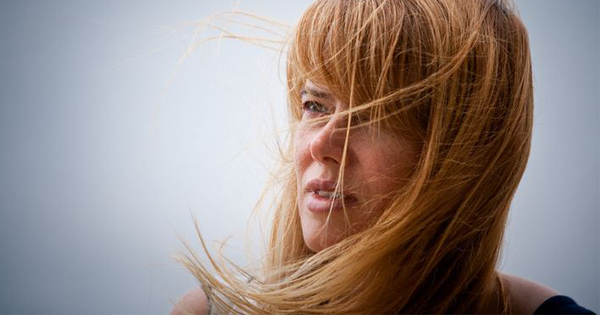Most of us spend a lot of time worrying about our hair—cutting it, coloring it, styling it—but we really never stop to think of what these hair issues actually mean.
Dry, limp hair doesn’t necessarily mean you’re using the wrong products and thinning hair isn’t always a natural thing that happens with age.
Sometimes, these problems stem from a greater health issue that you may not already know about.
Though many of us think of hair as dead protein, a slew of bodily changes are reflected through the health of our hair.
Here are a few hair problems that Caring.com suggests watching out for:
- Dry, Brittle Hair: If you’ve been blow-drying, straightening, bleaching, and dyeing your hair for years, then it’s probably time to give your hair some time to heal and repair itself. However, if you rarely do anything to your hair and it still looks dry, brittle, and weak, then this breakage might be the result of a more serious health condition. Cushing’s syndrome, hypoparathyroidism, and low levels of parathyroid hormone are just a few possible causes of fragile hair. If your brittle hair really is caused by an underlying health condition, then you’ll most likely notice other signs, like dry, flaky skin. Before jumping to conclusions, try deep conditioning your hair and adding more omega-3 fatty acids to your diet, like salmon and flaxseed oil. If your hair still seems dry and fragile after a couple of weeks, then talk to a doctor about these changes.
- Limp, Thin Hair: Again, heat and chemical damage are usually the culprits behind unhealthy looking hair. But, if your hair suddenly looks dry, limp, and thin for no reason, this might be an indicator of an underactive thyroid, known as hypothyroidism. Other symptoms of hypothyroidism include fatigue, weight gain, slow heart rate, constantly feeling cold, and thinning eyebrows. If you’re experiencing any of these symptoms, consult your doctor about testing the levels of your thyroid hormone.
- Scaly, Crusty Scalp: Unless you’re constantly putting tons of heavy products in your hair, your dry, flaky scalp is probably the result of psoriasis. As the most common of all the autoimmune diseases, psoriasis usually occurs when the skin goes into overdrive, resulting in a thick, scab-like surface around the hairline. The flakes should look just like dandruff. As long as you address this problem with your doctor early, psoriasis is fairly easy to keep under control. The treatment is generally a trial and error process of topical ointments, shampoos, and hydrocortisone creams. ##MN_RESP##
- Gray Hair: Contrary to popular belief, gray hair does not necessarily mean you’re getting old. If your hair seems to be graying rapidly while you’re still young, many doctors say this may be a sign of stress. Though researchers can’t prove it yet, many believe that stress has the power to interfere with how well the hair follicle transmits melanin, the pigment that gives hair its natural color. Genetics also play a major role in how long it will take for your own hair to start turning gray. So, if your father starting getting gray hair when he was in his early 30s, then you can probably expect a similar experience.
Which of these surprises you the most? Tell us in the comments!
Photo Copyright © 2010 Dani Vázquez/Flickr





